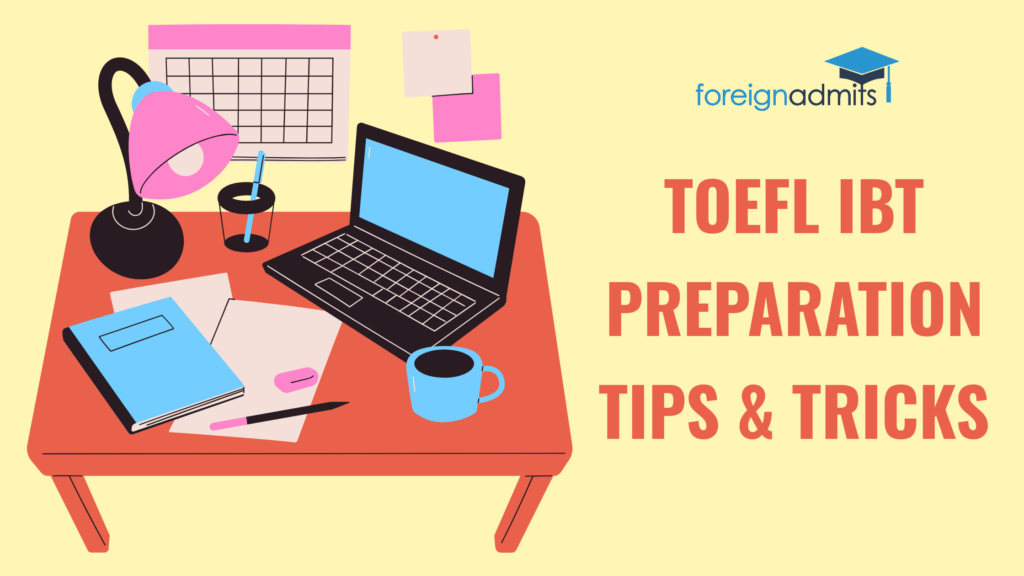If you’re about to take the TOEFL exam as a beginner, we understand how stressful the process can be — getting a high score, choosing a university based on that score, etc.
To reduce your stress levels regarding the TOEFL exam preparation, we have a list of five essential strategies any beginner must know! But before we learn about some strategies, let’s understand more about the TOEFL exam itself-
What is TOEFL?
The Test of English as a Foreign Language, otherwise known as the TOEFL exam, was first administered in 1964 by the USA. This is a standardized test to measure the English language ability of non-native speakers conducted by the Educational Testing Service. It is available in internet-based (TOEFL iBT) and paper-based tests (PBT). These tests are organized up to 50 times a year, and students can take any slot. However, students can take this exam only once in a 3-day period.
Now that we have a fair understanding of the TOEFL exam let’s take a look at five strategies that you can use-
Five strategies for beginners
1. Improve your note-taking skills
You get to hear audio clips during the TOEFL exam only once. To recall the information presented to you, it’s better to note your main points. Improving this skill helps not only during exams but also in professional settings. These rough notes can be as brief or detailed as you like, and they can be noted in the language you are most comfortable with. Keep practicing, as you should not miss out on information given while taking notes. You can also make this interesting by making it creative and using tree charts or different note-taking methods.
2. Create a personalized study plan
A personal study plan will benefit you more than the one created by someone else. Focus and plan your schedule around your weaknesses rather than your strengths. If your weak areas are vocabulary (content weakness) or test-taking method (strategy weakness), create a plan by understanding what method works for you and where your weaknesses lie. This will help you build a strong foundation and leave more room for revision later.
3. Familiarize yourself with the QWERTY keyboard
Since the writing section requires you to work on a computer and use the QWERTY keyboard, it’s best to get used to it. It will be wasteful if most of your time gets used to the keyboard. First, practice typing accurately without mistakes, and then improve your speed. This is one of those skills that go overlooked but can benefit significantly in the long run.
4. Listen to native speakers
To get acclimated to a language, you need to practice. Interviews, podcasts, music, news, and even TV shows can help beginners understand the language better. But to understand the pronunciation of words, it’s best to listen to native speakers. Listening to native English speakers will help you adjust to the speed and accent in which they speak. Doing so will allow you to focus on the content when listening to audio clips since it will be easier to grasp what they are saying. Another benefit of this activity is learning how to pronounce words you find difficult.
Bonus tip: After a while, instead of watching the shows focus on listening and don’t use your visual skills to help you. See how well you can grasp the content in one hearing.
5. Have a set score goal in mind
“Reach for the moon even if you miss you a land among the stars” — This quote teaches you to aim high. When you have a set goal in mind and a reason for achieving that goal, you’re more likely to achieve it. Make sure this goal meets the minimum requirements from your college/university. This will give you the upper hand when you meet/exceed your target, as you can choose the university of your liking.
Practice makes you perfect. Start early and build on all the points mentioned above. This will reduce your stress and ease your mind about your readiness for the exam.
All the best!

